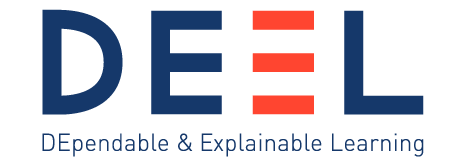Achieving robustness in classification using optimal transport with hinge regularization
Adversarial examples have pointed out Deep Neural Networks vulnerability to small local noise. It has been shown that constraining their Lipschitz constant should enhance robustness, but make them harder to learn with classical loss functions. We propose a new framework for binary classification, based on optimal transport, which integrates this Lipschitz constraint as a theoretical requirement. We propose to learn 1-Lipschitz networks using a new loss that is an hinge regularized version of the Kantorovich-Rubinstein dual formulation for the Wasserstein distance estimation. This loss function has a direct interpretation in terms of adversarial robustness together with certifiable robustness bound. We also prove that this hinge regularized version is still the dual formulation of an optimal transportation problem, and has a solution. We also establish several geometrical properties of this optimal solution, and extend the approach to multi-class problems. Experiments show that the proposed approach provides the expected guarantees in terms of robustness without any significant accuracy drop. The adversarial examples, on the proposed models, visibly and meaningfully change the input providing an explanation for the classification.
PDF Abstract CVPR 2021 PDF CVPR 2021 Abstract


 MNIST
MNIST
 CelebA
CelebA